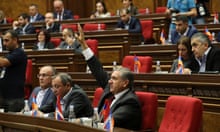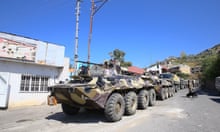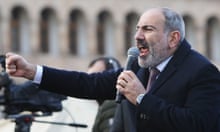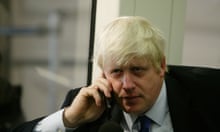Fighting on the border between Armenia and Azerbaijan has killed about 100 troops as attacks on both sides fed fears of broader hostilities breaking out between the longtime adversaries.
Armenia said at least 49 of its soldiers were killed; Azerbaijan said it lost 50.
The escalation of decades-old bloodshed between the south Caucasus countries has fuelled fears that a second fully-fledged war could break out in the post-Soviet world in addition to Russia’s invasion of Ukraine.
Armenia said several towns near the border with Azerbaijan, including Jermuk, Goris and Kapan, were shelled in the early hours of Tuesday, and that it had responded to what it called a “large-scale provocation” by Azerbaijan.
Azerbaijan’s foreign ministry in turn said it was responding to a “large-scale provocation” by Armenian troops who it accused of planting mines and firing on Azerbaijani military positions.
Russia, which has mediated between the ex-Soviet republics in the past, said it had succeeded in bringing the fighting to a halt later on Tuesday, although there were reports of ongoing clashes.
“We expect that an agreement reached as a result of Russian mediation on a ceasefire … will be carried out in full,” the Russian foreign ministry said in a statement, adding that it was “extremely concerned” by the latest fighting.
The US secretary of state, Anthony Blinken, said later he was concerned Russia could try to “stir the pot” between Armenia and Azerbaijan, adding that Moscow could also use its influence in the region to help “calm the waters.”
The Armenian prime minister, Nikol Pashinyan, has accused Azerbaijan of attacking Armenian towns because it did not want to negotiate over the status of Nagorno-Karabakh, an enclave that is inside Azerbaijan but populated mainly by ethnic Armenians.
“The intensity of hostilities has decreased but attacks on one or two fronts from Azerbaijan continue,” Pashinyan said in a speech to parliament. “For the moment, we have 49 [troops] killed and unfortunately it’s not the final figure.”
Azerbaijan, which accused Armenia of carrying out intelligence activity along the border and moving weapons, said its military positions came under attack by Armenia.
During the six-week 2020 war, Azerbaijan reclaimed broad swaths of Nagorno-Karabakh. The autumn conflict killed more than 6,600 people and ended with a Russia-brokered peace deal.
Both Russia and the US called on Baku and Yerevan to observe restraint.
“As we have long made clear, there can be no military solution to the conflict,” Blinken said in an earlier statement. “We urge an end to any military hostilities immediately.”
Russia, which operates a military base in Armenia, sent thousands of peacekeepers to the region in 2020. Moscow is a key power broker in the region and an ally of Yerevan through the Moscow-led Collective Security Treaty Organization (CSTO), which convened on Tuesday to discuss the situation.
The defence ministers of Armenia and Russia spoke on Tuesday morning and agreed to take steps to stabilise the situation on the border.
Turkey, a long-standing political and military sponsor of Azerbaijan, accused Armenia of being responsible for the outbreak of fighting and urged Yerevan to negotiate.
“Armenia should cease its provocations and focus on peace negotiations and cooperation with Azerbaijan,” Turkey’s foreign minister, Mevlüt Çavuşoğlu, tweeted after a phone call with his Azerbaijani counterpart, Jeyhun Bayramov.
France said it would ask the UN security council – of which it currently holds the presidency – to debate the conflict. Emmanuel Macron’s office said the president had held a call with his Armenian counterpart and affirmed that Armenia’s territorial integrity deserved “strict respect”.
Charles Michel, the president of the European Council, said he was in contact with both Pashinyan and the Azerbaijaini president, Ilham Aliyev, to prevent further escalation.
“Need a complete and sustainable ceasefire,” Michel wrote on Twitter. “There is no alternative to peace and stability - and there is no alternative to diplomacy to ensure that.”
Michel met Pashinyan and Aliyev last month in Brussels for talks on the normalisation of ties between the countries, humanitarian issues and the prospect of a peace treaty over Nagorno-Karabakh.
Reuters and Agence France-Presse contributed to this report







